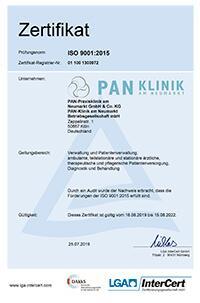Infertility is the absence of a pregnancy within 12 months of regular sexual life. This diagnosis is initially made for a married couple, since at the time of establishing the fact of the absence of a pregnancy, it is still unknown who has diseases of the reproductive system organs that prevent conception: a man, a woman, or both spouses. According to the diagnostic results, female infertility can be identified, which is more common than male infertility. This state, however, is not forever. Most women can get pregnant after receiving medical attention from doctors. If you have trouble getting pregnant, you can undergo your diagnostics and treatment abroad. You are welcome to visit the Booking Health website to find out the prices and compare the cost of treatment at different Centers for Reproductive Medicine. We will help you choose a hospital and arrange your treatment abroad.
Content
- Causes
- Diagnostics
- Conservative treatment
- Surgical treatment
- Assisted reproductive technologies
- Where to undergo your diagnostics and treatment?
Causes
To choose strategies for the treatment of female infertility, it is necessary to first determine the reasons for the disease in order to cure or control it. The most common causes are the following:
- ovulation disorders due to a hormonal imbalance cause 25% of cases of female infertility;
- endometriosis causes infertility in 15% of cases;
- pelvic adhesions cause infertility in 12% of cases;
- fallopian tube obstruction causes infertility in 11% of cases;
- diseases of the uterus cause infertility in 11% of cases;
- hyperprolactinemia is the reason for infertility in 7% of cases.
According to the mechanism of development, the two leading reasons for infertility are hormonal imbalances that interfere with the maturation of the egg, as well as tubal and peritoneal factors (pelvic adhesions and fallopian tube obstruction), which prevent the transport of the egg. The uterine factor that implies a violation of the attachment of a fertilized egg in the uterus is much less common.
Diagnostics
Diagnostics of infertility is no less important than its treatment. If the cause of reproductive dysfunction is established, it can usually be eliminated or compensated for.
A diagnostic examination is required for both partners. In the structure of infertility among married couples, female infertility accounts for 37%, male infertility accounts for 8%, and in 35% of cases, diseases of the reproductive system organs may be detected in both spouses. In other cases, the reasons for infertility remain unclear because both spouses are clinically healthy but the woman still cannot get pregnant. With the development of medicine, the proportion of both female and male infertility of unknown origin continues to decline as more and more causes of infertility may be discovered during the diagnostics.
A man undergoes a spermogram and a MAR test. These tests can determine the quantity, concentration, mobility, and structure of spermatozoa and the degree of their damage by antibodies (to exclude immune infertility). If the results of these tests are normal, any additional examination is not required.
Women can undergo their diagnostics using the following methods:
- a gynecological examination, vaginal flora smears, bacterial smears, and smears for oncocytology from the cervix of the uterus;
- hormone blood tests;
- a hysterosalpingography, which is a contrast-enhanced X-ray examination of the uterus and fallopian tubes to assess their patency;
- an ultrasound scan of the pelvic organs.
The above-listed tests are usually enough to identify the reasons for infertility. Occasionally, they may remain unexplained. In this case, a woman will need additional examinations, such as genetic and immunologic tests, blood coagulation tests, and a hysteroscopy (an endoscopic examination of the uterus).
Conservative treatment
The most common type of infertility is due to endocrine disorders. Hormonal imbalances can be corrected with medicines, or ovulation can be achieved for several cycles in a row so that a woman can get pregnant.
Methods of treatment of infertility with hormone therapy depend on the identified cause:
- patients with hypothyroidism (thyroid dysfunction) undergo thyroid hormone replacement therapy;
- patients with hyperprolactinemia take dopamine receptor antagonists;
- patients with luteal phase defects are treated with progesterone;
- patients with excess adrenal function take low doses of glucocorticoids to suppress it.
When endocrine disorders cannot be eliminated or compensated for, doctors switch to the use of ovulation induction medications. They prescribe women antiestrogens, which are taken as pills. If no ovulation occurs after three cycles, or if a pregnancy does not occur after six cycles, gonadotropins (FSH and LH preparations) may be used to stimulate the ovaries.
Surgical treatment
Basically, surgical treatment can be performed for the following two types of infertility:
- tubal and peritoneal factors (fallopian tube obstruction and pelvic adhesions);
- uterine factor (anomalies in the development of the uterus, intrauterine synechiae, or uterine fibroids).
Doctors in developed countries perform surgery to restore the patency of the fallopian tubes with laparoscopic techniques. This is a minimally invasive operation, after which women recover in 2 weeks.
Operations on the uterus are performed mainly during a hysteroscopy. These are endoscopic interventions that are done from the inside of the uterus with thin, long instruments under the control of a tiny video camera.
Assisted reproductive technologies
Women whose infertility has not been corrected with surgery or conservative therapy are candidates for artificial insemination. If, based on the results of the diagnostics, doctors conclude that getting pregnant with other methods is unlikely, a patient can be immediately referred to IVF.
The essence of the treatment is drug stimulation of the ovaries. The ovaries are then punctured to obtain eggs. They are fertilized with the husband's sperm. Within a few days, the embryos are grown on a nutrient medium. One or more embryos are then transferred to the uterus, and the rest are frozen. If unsuccessful, they can be transferred in the next cycle, avoiding repeated ovarian stimulation.
Where to undergo your diagnostics and treatment?
If you cannot conceive a child after 12 months of trying, and over the age of 35, after 6 months of trying, you should seek medical attention from specialists in reproductive medicine. You can undergo your diagnostics and treatment abroad at one of the best hospitals in the world. In developed countries, you will receive top-class medical services. You can find out the cost of treatment and compare prices on the Booking Health website. We will take care of all the arrangements for your treatment abroad on your preferred dates.
There are a few reasons for you to use the services of foreign doctors:
- high-precision diagnostics that allow doctors to determine the reasons for infertility in most patients;
- up to 80% of women can get pregnant after conservative therapy;
- the effectiveness of surgical treatment of infertility reaches 70%;
- doctors use the latest assisted reproductive technologies, providing a pregnancy rate of up to 50% or more per embryo transfer (for women under the age of 38);
- the use of special IVF protocols that help women get pregnant over the age of 40, even in the presence of somatic diseases and hormonal disorders;
- the use of preimplantation screening, with which genetic and chromosomal abnormalities in the embryo may be detected even before its transfer to the uterus, allowing doctors to choose a genetically healthy embryo;
- patients receive additional treatment to reduce the risk of a spontaneous abortion.
You are welcome to visit the Booking Health website to choose a hospital. You can sort medical centers by the cost of treatment, rating, reviews, or nearest free appointment date. When you make your treatment appointment through Booking Health, prices will be lower than when you contact the hospital directly. The cost of treatment will be reduced due to the absence of taxes for foreign patients. The specialists at the Booking Health company will provide you with a full package of travel arrangement services.
Authors:
The article was edited by medical experts, board-certified doctors Dr. Nadezhda Ivanisova and Dr. Vadim Zhiliuk. For the treatment of the conditions referred to in the article, you must consult a doctor; the information in the article is not intended for self-medication!
Sources:
Medical News Today
Healthline

















